Diet To Fight Inflammation – 6 Common Inflammatory Foods to Avoid (and What to Eat Instead)
Optimize Your Diet to Fight Inflammation – 6 Common Inflammatory Foods to Avoid (and What to Eat Instead)
Inflammatory Foods Overview:
Do you Know Inflammatory Foods can cause damage – Inflammation is what helps you heal when you are injured or down with an infection. However, not all inflammation is good for you. While short-term acute inflammation plays a protective role, persistent low-grade inflammation is a major risk factor for various chronic diseases, including cancer and heart disease.
Health professionals all over the world have time and again pointed out that diet plays a profound role in inflammation. What you eat can directly impact your gut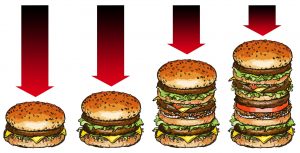
What are inflammatory foods?
Inflammatory Foods are those that are lacking in fiber and high in added sugar, sodium, saturated fats, refined grains, and trans fats that can drive sustained inflammation. Some inflammatory foods have a high glycemic index, which means eating them can cause blood sugar spikes. Excess consumption of these foods can promote obesity and insulin resistance, affecting multiple organs and causing widespread inflammation.
In general, anything that negatively affects your gut or your immune system is inflammatory foods. For example, refined carbohydrates and heavily processed inflammatory foods can be difficult to digest, which can irritate intestinal walls, leading to a leaky gut after prolonged inflammation.
The Staggering Connection Between Sugar, Chronic Inflammation, and Cancer
Common inflammatory foods that can trigger inflammation
1. Refined carbohydrates
Refined grains are inflammatory foods because they have their outer layers of bran and germ removed, which gives them a softer texture but also lowers their nutritional value. Examples of refined carbs include white rice, white bread, pizza, pasta, pastries, noodles, cookies, and processed breakfast cereals.
Compared to whole grains, refined grains contain fewer vitamins and are extremely low in dietary fiber. Fiber promotes satiety, controls binge eating, keeps blood sugar in check, feeds beneficial gut bacteria, and improves bowel regularity. Research suggests that fiber-rich foods can help lower inflammation due to these multiple indirect mechanisms.
As refined grains have little to no fiber, they are quickly used up by the body, providing a short burst of energy and spiking sugar levels. After this energy spike dies down, a person is likely to consume more calories. A 2012 study suggests that a diet high in refined grains and processed carbs can encourage the growth of inflammatory gut bacteria, promote weight gain, and increase the risk of type-2 diabetes.
2. Red meat and processed meat
Research shows that there is a well-established link between higher consumption of red and processed meats and an increased risk of inflammatory diseases such as obesity, heart disease, auto-immune diseases, and some types of cancer. Red meats are inflammatory foods if overconsumed. Persons consuming red meat also have a higher risk of mortality from these conditions.
Red meat contains high amounts of saturated fats, which can increase plaque build-up inside your arteries, narrowing and hardening them over time. Besides, red meats need more processing and are cooked at higher temperatures than leaner white meats, which further increases their pro-inflammatory effects.
Cooking meats at high temperatures increases the concentration of advanced glycation end products (AGEs), a type of pro-aging compound that harms healthy cells and triggers low-grade inflammation. Meats that are heavily processed through methods like curing, salting, smoking, or chemical preservation can also have an inflammatory effect on your gut. Examples of processed meats are sausages, hotdogs, bacon, beef jerky, and ham.
A recent 2021 study found a high intake of red meat to be associated with an early onset of rheumatoid arthritis, especially in obese individuals and smokers. Researchers suggested that persons with arthritis and auto-immune diseases should consider increasing their consumption of seafood and fatty fish, which are known to have an anti-inflammatory effect.
3. Added sugar
Sugar is, definitely, an inflammatory food, and here is why. Excess sugar consumption has a well-established connection with an increased risk of serious chronic diseases like obesity, type-2 diabetes, fatty liver disease, heart disease, kidney disease, and cancer.
Carbonated drinks, sugar syrups, packaged fruit juice, candies, cookies, and pastries contain high amounts of artificial sugar, which can alter the gut microbiome and cause inflammation of intestinal walls. Research shows that high sugar intake can suppress the immune system and increase the risk of allergies and common infections. Digesting sugary foods also generates harmful AGEs that impair the working of various organs and increase oxidative stress. Weakened immune function, compromised gut health, and increased oxidative stress are well-known risk factors that cause chronic inflammation.
4. Alcohol
There is some evidence that moderate alcohol consumption is beneficial for the circulatory system and may help prevent conditions like arthritis and stroke (it is not so much the alcohol but the compounds found within it – there are no health benefits of alcohol in my opinion). On the other hand, excessive alcohol use can cause inflammation in the intestines, disturbing the gut microbiota in a way that supports the growth of bad bacteria and resists good bacteria. This can weaken immune function (as about 80% of your immune system resides in your gut), leading to persistent inflammation.
Experts suggest that alcohol not only increases inflammation in the body but also weakens your ability to fight it. Our brain plays a vital role in lowering inflammation and its harmful effects. Excessive drinking can be stressful for the central nervous system, and its chronic exposure can impair the brain’s ability to regulate various functions.
Study shows that heavy alcohol consumption increases gut permeability and impairs the liver’s ability to detoxify bacterial products, causing colon toxins to escape into the bloodstream. This can affect multi-organ interactions and may even cause serious organ damage in some cases. Considering the inflammatory foods or substances used to make the alcohol, they can be considered inflammatory foods.
5. Omega-6 fatty acids
The average American overeats the inflammatory foods known as Omega-6 fatty acids. Our body needs two types of essential fatty acids: omega-3 and omega-6. They are called essential because the body cannot produce them, and we must derive them from different food sources, primarily vegetable oils and seeds. Omega-3 fats play an anti-inflammatory role in the body, whereas omega-6 tends to promote inflammation. While both of them are equally important, getting them in the right balance is crucial for physical and mental health.
Most cooking oils, vegetable oils commonly called seed oils, that are commonly used in homes contain extremely high amounts of omega-6 acids and an extremely low proportion of omega-3. Soybean oil, sunflower oil, corn oil, safflower oil, grapeseed oil, cottonseed oil, and walnut oil, for example, belong to this category.
Research shows that excessive consumption of omega-6 fatty acids can increase chronic inflammation and worsen conditions like arthritis and diabetes. To maintain a healthy balance, experts recommend replacing your cooking oil with healthier oils that have a lower omega-6/omega-3 ratio. Olive oil, canola oil, flaxseed oil, and macadamia oils are some good options to consider.
6. Fried foods
Fried foods are probably the biggest inflammatory foods of all. Why? Fried foods and packaged foods are high in artificial trans fats (high in Omega-6 fatty acids), which can cause low-grade inflammation and put you at an increased risk of heart disease and diabetes. Research shows that high consumption of trans fats lowers HDL (good cholesterol) levels and increases bad cholesterol, total cholesterol, and triglyceride levels. This can adversely affect the functioning of endothelial cells that line your blood vessels and arteries, potentially increasing inflammatory markers.
Many packaged foods are heavily processed using hydrogenated oils, which further increases the concentration of trans fats. If you like crispy foods, try switching to methods like air-frying or oven-baking.
EMF Radiation: 4 Critical Dangers and Health Risks – What You Need to Know
Anti-inflammatory foods
1. Whole grains
Replacing refined grains with whole grains is one life-changing step that can bring you many steps closer to your healthiest self. Loaded with dietary fiber, vitamins, and minerals, whole grains provide all-around nourishment and lower blood sugar levels. One 2010 study found refined grains to have a pro-inflammatory effect, whereas whole grains were found to lower inflammation and reduce the risk of cardiovascular diseases.
2. Omega-3
Omega-3 fatty acids are found in flax seeds, fatty fish (salmon, tuna, sardines), fish oil, chia seeds, walnuts, avocados, and brussels sprouts. Study shows that consumption of omega-3 acids can lower inflammation and help with conditions like rheumatoid arthritis, auto-immune diseases, inflammatory bowel diseases, coronary heart disease, migraine headaches, and psoriasis. Foods high in omega-3 acids are also known to reduce the risk of cancer and support healing.
A 2018 study has shown that the Mediterranean diet – which is rich in omega-3 fatty acids, legumes, fruits, and nuts and low in dairy and meat – is a perfect example of an anti-inflammatory foods, and people who follow this diet have lower markers of chronic inflammation.
3. Spices
Spices are among the most powerful anti-inflammatory foods on the planet. Apart from boosting your regular meals with an extra dose of micronutrients, they can also provide a wide range of antioxidants that can help fight free radicals and reduce inflammation. Studies have shown that spices have immune-boosting and anti-inflammatory properties that can promote gut health, lower blood sugar levels, maintain healthy cholesterol levels, regulate blood pressure, and protect the brain against neurodegenerative diseases.
A 2018 study documented as many as 30 powerful anti-inflammatory compounds that are found in Indian spices. Researchers suggested that adding more spices to your meals can prevent a number of chronic diseases, including various types of cancer. Moreover, spices are also great at promoting mental and emotional health, which can further reduce the risk of stress-induced inflammation.
Turmeric, black pepper, garlic, ginger, cumin seeds, cardamom, nutmeg, rosemary, saffron, cinnamon, star anise, and fenugreek are some well-known spices that have anti-inflammatory foods properties.
4. Fresh fruits and berries
Most types of berries, including blueberries, cranberries, blackberries, strawberries, and raspberries, contain impressive amounts of anthocyanins. Anthocyanins are potent antioxidant compounds that can reduce inflammation and improve heart health. Apart from berries, grapes, plums, cherries, and currants also contain this compound.
Apples, oranges, avocados, pineapple, and watermelon are also known for their anti-inflammatory properties.
5. Green leafy vegetables
Spinach, asparagus, beetroot, radish, lettuce, carrots, potatoes, sweet potatoes, pumpkin, bell peppers, and tomatoes are some incredibly rich sources of plant-based antioxidants.
Cruciferous vegetables, which include broccoli, cauliflower, kale, cabbage, brussels sprouts, and collard greens, are rich in an anti-inflammatory compound called sulforaphane. Research suggests that eating a lot of cruciferous vegetables can lower oxidative stress and prevent chronic conditions like cancer and arthritis.
Final thoughts
Inflammatory foods have no nutritional value. Nutrition is such a profound aspect of healing that a healthful diet is not only desirable but also a prerequisite for leading a productive and meaningful life.
When you are trying to switch to an anti-inflammatory diet, it is important to remember that healthy eating is a habit rather than a food chart. It is about making conscious, well-informed choices and working out a set of eating principles that work for you. When to eat and how to eat are just as important as what to eat.
Simple dietary adaptations – such as eating a low glycemic diet, cutting back on sugar and processed foods, spicing up your meals, and increasing the intake of omega-3 acids, fresh fruits, vegetables, and berries – can be powerful tools in your fight against inflammation.
However, the same foods can have different reactions in different individuals. For example, persons who are allergic to gluten or milk may find them inflammatory, whereas these foods are not known to increase inflammation in other people.
To Your Health!
References
https://www.ncbi.nlm.nih.gov/pmc/articles/PMC2821887/
https://pubmed.ncbi.nlm.nih.gov/18469238/
https://pubmed.ncbi.nlm.nih.gov/25581832/
https://www.nature.com/articles/s41598-021-85035-6
https://www.nature.com/articles/nm.3145
https://onlinelibrary.wiley.com/doi/epdf/10.1002/art.20731
https://www.ncbi.nlm.nih.gov/pmc/articles/PMC2842521/
https://pubmed.ncbi.nlm.nih.gov/6141332/
https://pubmed.ncbi.nlm.nih.gov/29727694/
https://pubmed.ncbi.nlm.nih.gov/12480795/
https://www.ncbi.nlm.nih.gov/pmc/articles/PMC5785894/


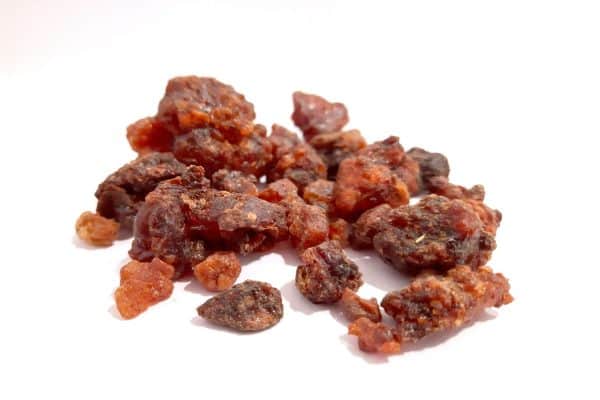



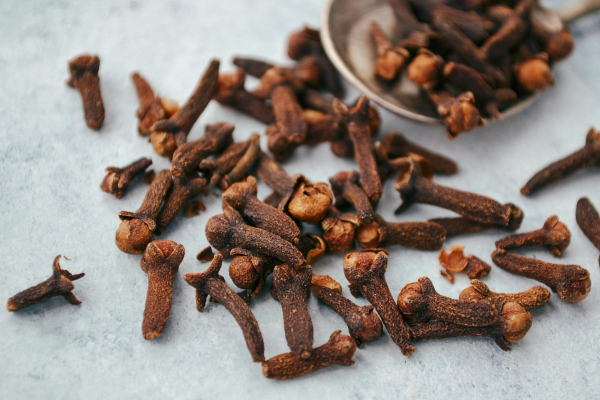
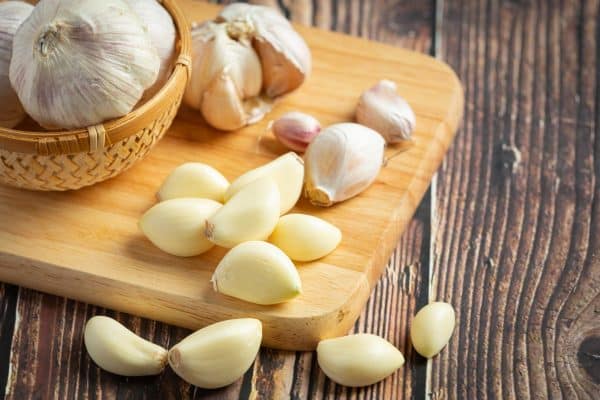

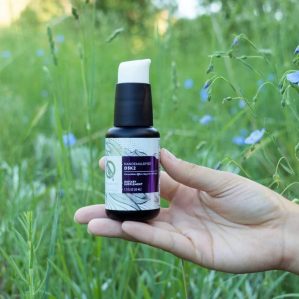
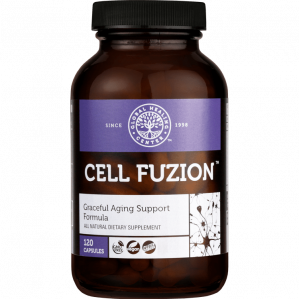
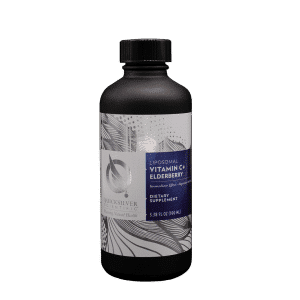













1 Comment
[…] addition, cherries contain antioxidants like carotenoids, anthocyanins, and polyphenols that lower inflammation and support a robust immune function. Low-grade inflammation is a major risk factor for […]